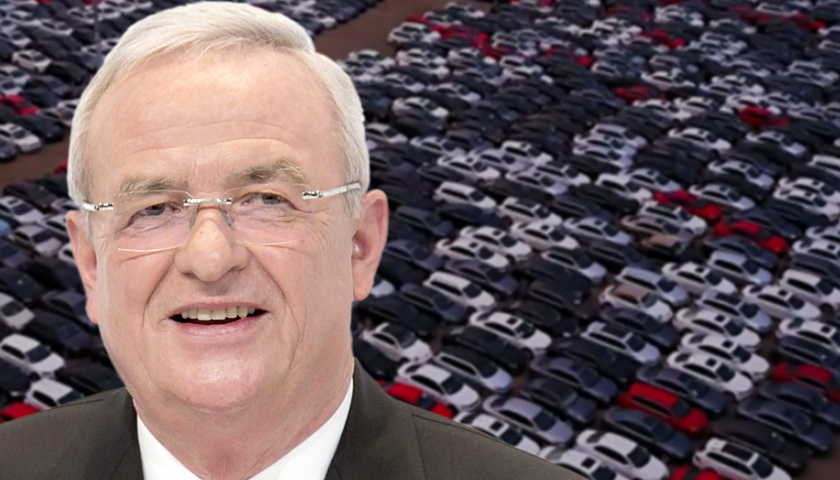Will hundreds of thousands of Volkswagen diesel vehicles that have been the subject of U.S. and international criminal and civil actions after it was discovered that the vehicles had been rigged to “cheat” emissions testing soon be sold in Tennessee?
It appears so, though few state or federal officials seem to be engaged in the issue on behalf of Tennessee consumers and business owners at this point.
In June, German prosecutors fined Volkswagen $1.2 billion for rigging diesel engine emissions testing around the world. The prosecutor noted in making the announcement that it was one of the highest fines ever imposed on a company in Germany.
Volkswagen accepted the penalty, which related to inadequate oversight in the department that develops powertrains — engines and transmission systems. Approximately 10.7 million vehicles were sold to customers in the United States, Canada and worldwide “with an impermissible software function in the period from mid-2007 until 2015,” Volkswagen said in a statement acknowledging their role in what has been dubbed “Diesel-gate.”
Last year Volkswagen agreed to pay $4.3 billion in U.S. criminal and civil fines for the company’s diesel emissions cheating scandal. A federal grand jury in Michigan also indicted six Volkswagen employees and executives for their alleged roles in the nearly 10-year conspiracy. Among those charged with felonies was the former Volkswagen AG CEO Martin Winterkorn (pictured).
Volkswagen pleaded guilty to three criminal felony counts, including “participating in a conspiracy to the defraud the United States and Volkswagen’s U.S. customers and to violate the Clean Air Act by … using cheating software to circumvent” the emissions testing process on some Volkswagen, Audi and Porsche diesel vehicles, according to the Department of Justice. In addition, Volkswagen has been charged with obstruction of justice “for destroying documents related to the scheme, and with a separate crime of importing these cars into the U.S. by means of false statements about the vehicles’ compliance with emissions limits,” the Department of Justice said.
The $2.8 billion criminal penalty and $1.5 billion civil penalty brought Volkswagen’s total cost to the United States to about $20 billion. The company reached settlements in 2016 of more than $15 billion with consumers, the government and California regulators. That money is intended for buybacks, fixes, owner compensation and environmental remediation.
The “cheat” device software, installed on nearly half a million diesel Volkswagen cars sold in the U.S. between 2009 and 2015, could detect when a vehicle was undergoing emissions evaluations and decrease its nitrogen oxide emissions to comply with American standards.When the software recognized the vehicle was on the road, however, it would allow emissions up to 40 times higher than permitted.
Through October 18, 2016, 340,000 owners and lessees had sent in registration forms indicating they wanted the company to buy back their cars under the government-negotiated compensation agreement. That’s nearly three-quarters of all 475,000 Volkswagen and Audi models with 2.0-liter diesel engines registered on U.S. roads at that time. Volkswagen currently has 300,000 cars stored across the US and in Tennessee. These cars — even after modifications — may not meet U.S. emission standards.
Volkswagen apparently plans to resell the “fixed” cars in the U.S. market, including in Tennessee, despite the fact that they have been stored in open lots for the last several years. Initial concerns about the Volkswagen diesel scandal were focused on the impact it might have on Volkswagen’s Chattanooga operations. Now, however, those concerns revolve around how Tennessee consumers may be affected, as well as Tennessee auto dealers faced with the potential of hundreds of thousands of “fixed” vehicles being dumped in the state at below market price.
Congressman Chuck Fleischmann (R-TN-03), who represents the Chattanooga area, has been hearing from constituents who have concerns about the vehicles and whether or not they will meet U.S. emission standards after the “fix.” Yet, Volkswagen continues to ignore requests by U.S. congressional investigators to ensure this type of emissions cheating scandal won’t happen again. Just last month, Congressman Lamar Smith (R-TX) requested documents related to the scandal from Volkswagen as Chairman of the House Committee on Science, Space and Technology. But Volkswagen has not yet complied with the request. There are no Tennesseans, of either political party, on that Committee.




